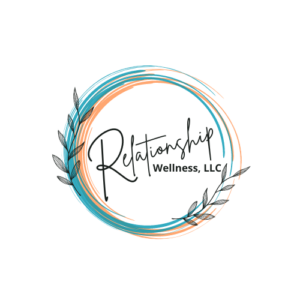Frequently Asked Questions
Photo by Joshua Earle
You need to be fully aware of what to expect with counseling. Whether you’ve never received therapy before or you’re an expert at being a client, it’s important we have no mysteries with counseling services. Here’s a set of Frequently Asked Questions, FAQ.
Do I have to be a leader or a therapist to get counseling from you?
Not at all. Likely, you’re a leader in some capacity if you’re a parent, a spouse, a coworker, or in ministry. Even if you don’t identify with any of these roles, it’s likely you have influence in ways you don’t realize.
Do you counsel individuals who are not in relationship since you identify yourself as a relationship therapist?
Yes. My core training as a licensed professional counselor with mental health service provider status equips me to work with individuals dealing with anxiety, depression, mood disorders, grief, indecision and other issues. I have a holistic and family systems way of thinking when I work with individuals. Although we may be experiencing isolation, we’re all relational beings. I’m honored to come along side you in individual counseling.
Why is counseling pricey?
Licensed professional counseling is a specialty which requires intense education, training, and supervision to meet mental health and relational needs of clients.
Just as a medical doctor is trained to diagnose and treat physical issues, a licensed counselor with mental health service provider status is trained to diagnose and treat interpersonal wellness and mental health issues. There’s more I’ve written about this in What Kind of Professional Counseling Do I Need?
Why would I trust a stranger who doesn’t know me with intimate details of my life?
It’s important that you know, like, and trust your therapist, just as you should know, like, and trust your OB/GYN or family doctor. I don’t recommend blindly going to anyone for counseling any more than I would those of other helping professions. We’re generally open to those who are trained and licensed in their professions: mechanics, plumbers, doctors, lawyers, teachers, etc.
Opening up to an experienced, licensed therapist can help give you perspective beyond your patterned way of thinking. Here’s two things you can do:
- Get counseling referrals from people you trust.
- Do research on therapists who specialize in what you’re looking for.
Why should I consider counseling when I have my friends to talk to?
Your friends, your hair stylist can be the place to start. When your friends, family, spouse, or stylist says to you, “you may want to see a therapist,” it’s time to seek therapy. You want to nurture your friendships rather than create strain on the relationship. Healthy friendships have a good balance of give and take. If you feel better, but your friend feels drained, it’s time to seek therapy.
When you get help from a therapist, you don’t have the emotional attachment and history that your close family and friends have. Counselors can help you see your situation more clearly with a trained eye for well-being.
Can I use my insurance benefits to pay for counseling?
I’ve written more about fees and insurance benefits from the fees tab on this website. Depending on your insurance plan, you can use your out-of-network benefits for my services.
How will I know if my time and commitment to counseling is worth it?
It’s important that you experience counseling as valuable and worth your time, energy and money. Here are questions to consider after a series of sessions:
- Is my purpose and communication more clear?
- Am I less depressed, anxious, stressed? Am I sleeping better? Is my overall health better?
- Have my problem symptoms decreased?
- Am I more self-aware? Am I on a journey toward health and well-being? Am I making the next right decision?
- Have I learned practical insights? Am I more loving, organized, settled, growing?
- Do I have a plan for nurturing myself and my relationships?
What is my preparation for the first appointment?
Even before the first session, you’ll fill out your online registration and have the ability to see my schedule and set your appointment. When you take additional time to fill out the biographical form, you’ll save time in our first meeting. You can fill out as much or as little as you want for the biographical form. It allows you to list symptoms you’re having or describe recent stressors. For most people, it helps give them clarity before the first session.
I’m unsure of whether I need couples or individual counseling
This is a common question. Please read through this short article about How Couples Counseling Can Make You More Discouraged.
What’s my next step?
You can call or text me and include your email address. I’ll email you with directions and an attachment of the counseling agreement. It helps answer questions in case you want a follow-up call before scheduling your first session.
What will it be like at my first session?
Don’t worry if you’re unclear about why you’re seeking help or you struggle with verbalizing your needs. I’ll be asking questions to help you get clear.
I recognize that your story is much bigger than what you can disclose in our first 60 minutes together, (or 90 minutes if we’re doing couples). But by the end of our time, you will likely be clear with a plan for what you’d like to take away. You’ll have an idea on how often and how many sessions it will take to accomplish your next level of growth or healing.
What can I expect from a first couples 90 minute session?
First of all, It’s not unusual for one to be pressured by the other to come in. That’s normal. It’s common for one to be more eager than the other. Rarely are we as couples on the same level of readiness. I may ask, “so which one of you twisted the arm of the other to make this appointment?” It lightens the mood a bit. And I can compare it with sitting in the dentist chair waiting for a root canal.
Both of you will fill out separate registrations and biographical forms since both your perspectives are valuable. I like to acknowledge your strengths as a couple and capitalize on that in the midst of the problems you need solved.
Again, all of our stories are much larger than the initial 90 minutes we begin with. That’s why I ask questions that zone in on the overview of what we need to begin.
Without putting you on the spot, I am listening and observing your relationship interaction and nuances. Depending on how much background information you need to share, there’s cases where the first 90 minutes allows the experience of dialogue. Many times, I’m amazed at the emotional safety and level of connection a couple can experience in that initial session. To me, those are sacred moments of partnership created by the couple themselves.
All three of us will be aware of the agenda you wish to accomplish in our subsequent sessions. You may want time to process the first session before scheduling more appointments. Or, we can schedule a series of appointments to accomplish the connection and healing you desire.
What if I want only career counseling?
It’s so worth-while to get clarity about direction for your career. So much of our lives are intertwined with relationships, careers, and emotional well-being. If you’re seeking business consulting rather than mental health counseling, you’ll follow the same procedure in the online registration. You won’t need to fill out a biographical form. Instead you may want to bring in a resume or results of other assessments you’ve taken in the recent past.
Help! We’re on the verge of divorce.
If both of you are willing to meet, we can set up a plan for momentum to move you beyond the urgency of your situation. You likely will benefit from the half-day or full-day outdoor retreat. But first, we’ll meet for the 90 minute webcam session. If you need immediate attention and I’m available, there is additional fees. You can call me directly at 423-551-9916. Remember to register online separately. To save time and get to core issues quickly, I recommend the Relationship Checkup. It takes about two hours to complete and will help me assess both individual and relationship issues that are contributing. Think of getting blood work before going to your physician. The assessment results will give clarity about your treatment as a couple.
If you don’t see your question here
Please email me and ask. I’ll add it to this list. Likely a hundred other people have the same question.


